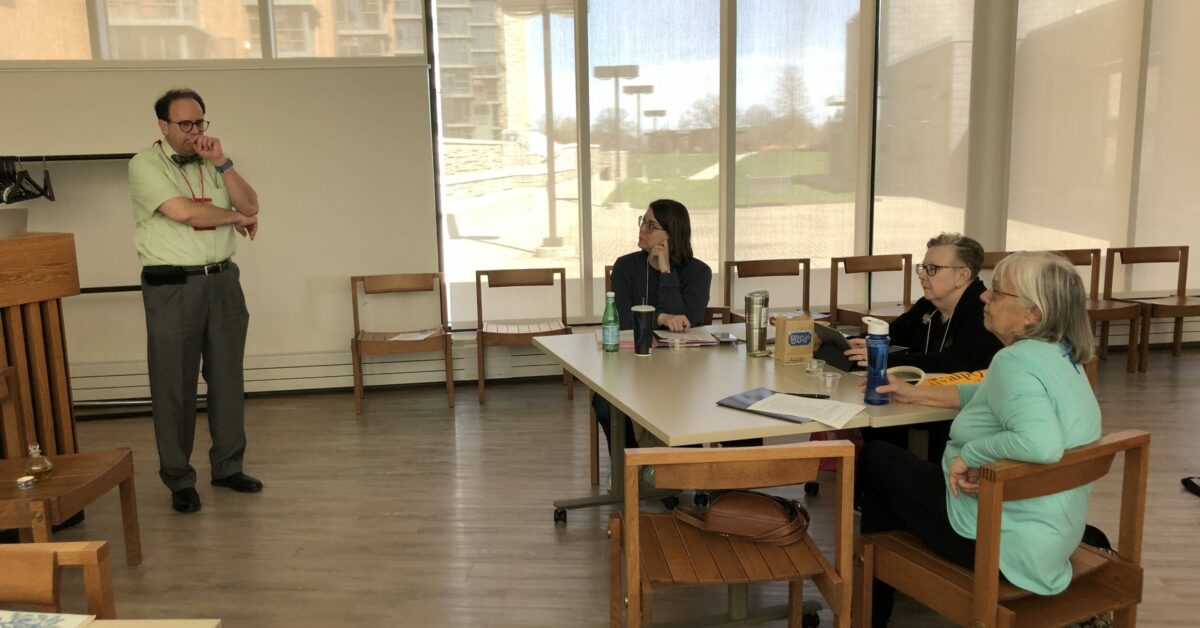Catechumenate Formation for Pastors and Deaconesses-to-Be: Experiential Pedagogy
Two-thirds of the way through this half semester course—as students were preparing to make their presentations on various aspects of the catechumenate—the revelation popped into my head that I had used few experiential pedagogical elements in the course. What a sucker-punch self-critique of my pedagogy this was. Why? For at least two reasons, first because I strive to teach using a variety of pedagogies to attend to students’ different learning styles. Experiential learning is a critical style to attend to, especially among students of the post-modern generations. And here I had utterly failed to employ any experiential pedagogies. Second, because Dr. Schuler and I had included just such learning strategies throughout the workshops we had held both in person and on-line over the past four years. How had I forgotten about these extremely effective ways of learning about the catechumenate that we had employed in the past? In our next class period, I immediately began class by asking for forgiveness from my students for having failed them as a teacher in this regard. In next year’s version of the class, I will not make the same mistake.
In our catechumenate workshops we have employed both ritual and catechetical, experiential pedagogies. [Our image for this post only hints at it, with the oil on the table below my posture.] We have had participants experience the rite of acceptance with anointing of the body and the rite of enrollment with the signing of the Book of the Elect. Catechetical experiences have included the African, the visualization, and the Luther Scripture study methods. All three involve reflective, personal consideration of the texts and questions that explore their meaning for the catechumens’ lives of faith in the Triune God. (We have explored these study methods in previous blog posts. If you’d like a copy of one of these posts, e-mail me at burresonk@csl.edu). Exposure to all of these experiential learning experiences will be a part of the course going forward.
But you, the reader, are wondering what does Burreson’s pedagogical failure have to do with me? Well, primarily, learn from my error of judgement. Your catechumenate should include such opportunities for experiential learning throughout the catechumenate’s length. This will embed the learning and formation of the catechumenate in intentional ways that take hold of the catechumen. This is one of the reasons that ritual action is significant in faith formation. But the same thing applies to experiential forms of Scripture study and opportunities for service to the church and the community throughout the catechumenate. Engagement with these types of experiential learning also becomes important when introducing the catechumenate to a congregation. They need to experience the same things that the catechumens will experience. They need to be formed by the same vision of Christian life, into a similar experience of entering the Christian life. Hopefully, they are captivated and it renews their own faith.
My students forgave me in early May for failing them pedagogically. Repentance and forgiveness lead by the Spirit’s power to new fruits of faith. Experiential pedagogy will be a constitutive part of the class from now on. I pray you don’t need to repent of such failures in your catechumenate; that it is already filled with an abundance of experiential learning.
